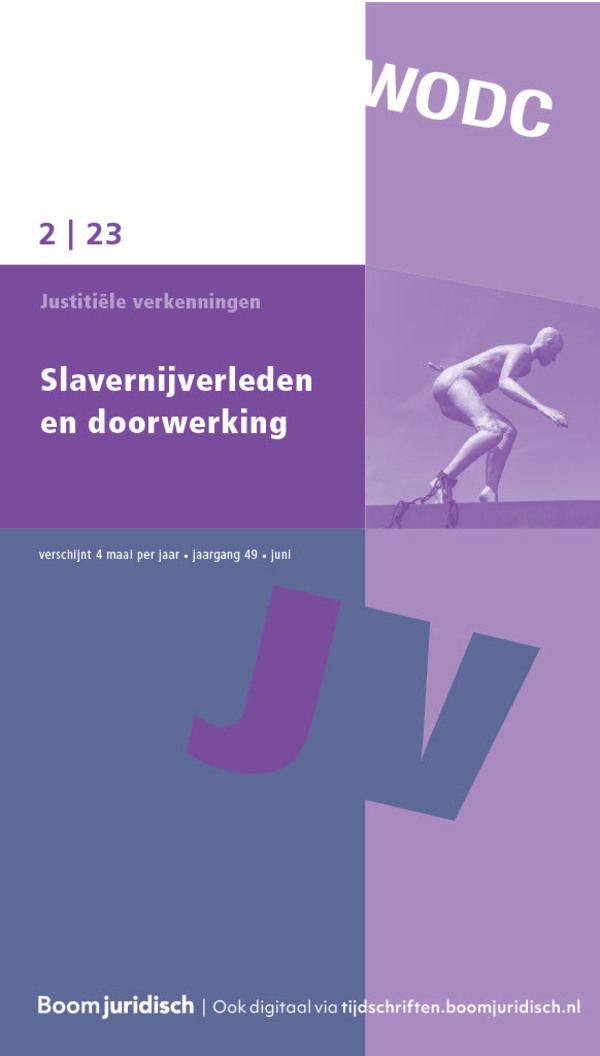|
Governments have a great need for policy-relevant research. The Dutch government obtains part of this research from the so-called state knowledge institutions: public research organizations that support ministries in the preparation and implementation of policy. To be able to provide reliable research, state knowledge institutions must be able to act independently and with integrity. But to be policy-relevant, they must maintain in close contact with ministries. Proper handling of this tension does not only requires ‘hard’ formal rules, procedures and codes of conduct, but also ‘soft’ informal institutions, such as awareness, dialogue, education, and culture. Implementing this is a shared responsibility of both the research organizations and the ministries. |


Justitiële verkenningen
Meer op het gebied van Criminologie en veiligheid
Over dit tijdschriftMeld u zich hier aan voor de attendering op dit tijdschrift zodat u direct een mail ontvangt als er een nieuw digitaal nummer is verschenen en u de artikelen online kunt lezen.
| Redactioneel |
Inleiding |
| Artikel |
|
| Trefwoorden | policy-relevant research, public research organisations, research independence, integrity, safeguarding instruments |
| Auteurs | Dr. Gijs Diercks en Dr. Paul Diederen |
| SamenvattingAuteursinformatie |
| Artikel |
U vraagt, maar wij draaien niet?Over wetenschappelijk onderzoek in opdracht |
| Trefwoorden | commissioned scientific research, independence, undue influence, scientific method, supervisory committees |
| Auteurs | Prof. dr. Henk Elffers |
| SamenvattingAuteursinformatie |
|
Those who commission scientific research sometimes try to influence what and how the researcher executes the project, or to influence the outcomes. The scientific community utterly rejects such practices. The author discusses the diametrically different opinions on what is acceptable in the relation between those who commission scientific research and those that accept such a commission. |
| Artikel |
Opdracht- en ander onderzoek in het juridische domeinEen persoonlijke visie vanuit de rechtssociologie |
| Trefwoorden | commissioned research, academic research, legal policy, socio-legal studies, independency |
| Auteurs | Prof. mr. Nick Huls |
| SamenvattingAuteursinformatie |
|
In this article the author asserts, based on his own experiences in this field, that the independence of research and researchers is not a given, but must always be conquered and defended. He relates the necessity of doing commissioned research to developments in Dutch legal academia and describes its strengths and weaknesses. He then makes the comparison with ‘pure’ academic research. He shows that most lecturers must fight and defend their independence against all sorts of developments within the modern university. There is not much room anymore to do one’s own free research. He concludes that neither academic nor commissioned research takes place in a vacuum without power relations. |
| Artikel |
Bericht uit een fluwelen kooiOver het onbehagen van een politieonderzoeker |
| Trefwoorden | history of police studies, police history, societal perspective, creativity, interpassivity |
| Auteurs | Dr. Guus Meershoek |
| SamenvattingAuteursinformatie |
|
Dutch police research is predominantly of a policy supporting or evaluative nature. Significant publications, such as those that started police research in the 1970s, are rare. This loss is analyzed in this article. Firstly, the author describes how the research community has changed: police officers who were disillusioned with the organization and mastered scientific competencies were succeeded by university-educated researchers who had to earn a position in the police. Secondly, the police integrated the societal urge for change, transformed it into a style of management and immunized themselves in this way against innovation. Thirdly, researchers exchanged social scientific theories for policy concepts, focusing on efficiency and excluding a societal perspective on the police. Finally, by recognizing the impact of research as a criterion of success, researchers relinquished their judgment on the quality of their research to police managers. Improvement of the situation depends first of all on the creativity and boldness of researchers. |
| Artikel |
De Nederlandse gedragscode wetenschappelijke integriteit 2018 |
| Trefwoorden | good research practice, transparency, independence, duties of care, responsibility |
| Auteurs | Prof. dr. Antoine Hol |
| SamenvattingAuteursinformatie |
|
The new Dutch Code of Conduct for Research Integrity (2018) offers an important document for strengthening good research practices. It can be used in training researchers, informing the general public on standards guaranteeing trustworthiness of scientific research and handling allegations of misconduct in this research. The code departs from a set of principles worked out in standards describing the do’s and don’ts of good research practice. The Dutch code distinguishes itself for amongst others having a special section on duties of care of the organization where researchers are appointed. The organization has special responsibilities to give support to its researchers to develop good research practice and to foster a research culture in which dilemmas of integrity can be discussed in an open atmosphere. In this article special attention is paid to the principle of dependency. It is with regard to this principle that the researcher is most vulnerable, especially when it comes to commissioned research projects. How can the researcher be supported when dependency and honesty are under pressure? |
| Agenda |
Congresagenda |

